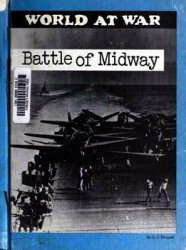Senator William H. Seward of New York represented the more radical anti-slavery position that made him the favorite of abolitionists. Although his views would help prevent him from gaining the Republican nomination for president in 1860, he did become Abraham Lincoln's Secretary of State, a position he held through the administration of Andrew Johnson following Lincoln's assassination.72 Seward argued:
_It is insisted that the admission of California shall be attended by a compromise of questions which have arisen out of slavery. I AM OPPOSED TO ANY SUCH COMPROMISE, IN ANY AND ALL THE FORMS IN WHICH IT HAS
BEEN PROPOSED, because, while admitting the purity and the patriotism of all from whom it is my misfortune to differ, I think all legislative compromises radically wrong and essentially vicious. They involve the surrender of the exercise of judgment and conscience on distinct and separate questions, at distinct, and separate times, with the indispensable advantages it affords for ascertaining truth. They involve a relinquishment of the right to reconsider in future the decisions of the present on questions prematurely anticipated; and they are a usurpation as to future questions of the province of future legislators. _

_ There is another aspect of the principle of compromise which deserves consideration. It assumes that slavery, if not the only institution in a slave state, is at least a ruling institution, and that this characteristic is recognized by the Constitution. But slavery is only one of many institutions there - freedom is equally an institution there. Slavery is only a temporary, accidental, partial, and incongruous one; freedom, on the contrary, is a perpetual, organic, universal one, in harmony with the Constitution of the United States. The slaveholder himself stands under the protection of the latter, in common with all the free citizens of the state; but it is, moreover, an indispensable institution. You may separate slavery from South Carolina, and the state will still remain; but if you subvert freedom there, the state will cease to exist.
But there is yet another aspect in which this principle must be examined. It regards the domain only as a possession, to be enjoyed either in common or by partition by the citizens of the old states. It is true, in. deed, that the national domain is ours; it is true, it was acquired by the valor and with the wealth of the whole nation; but we hold, nevertheless, no arbitrary power over it. We hold no arbitrary authority over anything, whether acquired lawfully or seized by usurpation. The Constitution regulates our stewardship; the Constitution devotes the domain to union, to justice, to defense, to welfare, and to liberty.
But there is a higher law than the Constitution which regulates our authority over the domain and devotes it to the same noble purposes. The territory is a part—no inconsiderable part—of the common heritage of mankind, bestowed upon them by the Creator of the universe. We are His stewards and must so discharge our trust as to secure, in the highest attainable degree, their happiness. . . .
_ And now the simple, bold, and even awful question which presents itself to us is this: Shall we, who are founding institutions, social and political, for countless millions—shall we, who know by experience the wise and the just, and are free to choose them, and to reject the erroneous and unjust shall we establish human bondage, or permit it, by our sufferance, to be established? Sir, our forefathers would not have hesitated an hour. They found slavery existing here, and they left it only because they could not remove it.
There is not only no free state which would now establish it but there is no slave state which, if it had had the free alternative as we now have, would have founded slavery. _ I confess that the most alarming evidence of our degeneracy which has yet been given is found in the fact that we even debate such a question.
Sir, there is no Christian nation, thus free to choose as we are, which would establish slavery. I speak on due consideration, because Britain, France, and Mexico have abolished slavery, and all other European states are preparing to abolish it as speedily as they can. We cannot establish slavery, because there are certain elements of the security, welfare, and greatness of nations, which we all admit, or ought to admit, and recognize as essential; and these are the security of natural rights, the diffusion of knowledge, and the freedom of industry. Slavery is incompatible with all of these, and just in proportion to the extent that it prevails and controls in any republican state, just to that extent it subverts the principle of democracy and converts the state into an aristocracy or a despotism. _
FSee longer excerpts from the 1850 Compromise debates in the Appendix.)
The debate in Congress was long and tortured, and for a time the cause seemed hopeless. Those 1850 debates were the last great Calhoun, Clay and Webster show, though all three were past their prime and not far from death. John C. Calhoun died in March, 1850. Upon President Taylor's death, Daniel Webster was called by President Fillmore to return to the post of Secretary of State. Henry Clay and Senator Stephen A. Douglas of Illinois sought to break the impasse. They divided the compromise into separate bills, which allowed members to vote for what they liked and against what they did not like. By so doing, Clay and Douglas brought the seven-month-long debate to a successful conclusion. Congress adopted each of Clay's major proposals as separate measures with only minor alterations.
The Compromise admitted California as a free state, organized the territories of New Mexico and Utah on the basis of popular sovereignty, and retracted the Texas border with New Mexico in return for federal assumption of the Texas debt. It also abolished the slave trade in the District of Columbia. The most controversial provision created a strong Fugitive Slave Law to replace the 1793 act. The act denied suspected runaways the right of self-defense, and required Northerners, in effect, to help enforce slavery. The South accepted the Compromise of 1850 as conclusive and backed away from threats of secession. In the North, the Democratic Party gained popularity by taking credit for the compromise, and the Whigs found it necessary to cease their criticism of it.
For the moment, the Compromise of 1850 preserved the Union, and passage of the compromise led to euphoric celebrations of fireworks and bell-ringing throughout the North, but the victory did not last long. Instead of being a "final solution"—to all except northern radical abolitionists—the so-called compromise was never fully accepted by either party; people on both sides of the Mason-Dixon line opposed at least part of it.
Trouble with the compromise centered on the 1850 Fugitive Slave Law, which struck fear in the hearts of northern blacks and encouraged more Southerners to try to recover escaped slaves. Northern abolitionists often interfered with the enforcement of the law, and such efforts exacerbated sectional feelings. The sight of blacks being carried off to slavery outraged Northerners, and Southerners resented the Northerners' refusal to obey the law. Ironically, the traditional position of states' rights attributed to Southerners now cut the other way, as it was Northern states that sought to nullify a federal statute. Some states passed personal liberty laws to protect free blacks, but the Fugitive Slave Law forced many Northerners to experience the heartlessness of slavery first hand. In a number of instances, resistance to the law led to violence.
Christiana, Pennsylvania, lies about 20 miles north of the Mason-Dixon line. In September, 1851, Edward Gorsuch, a Maryland slave owner, obtained warrants under the new law to search for four escaped slaves who had run away to Pennsylvania. They were being sheltered by William Parker, a free black farmer who lived in Christiana and belonged to a group known for protecting runaway slaves. When Gorsuch and his search party arrived at the Parker farm, they met with resistance. Arguments broke out and shots were fired. Gorsuch was killed and others were wounded. News of the event, which became known as the Christiana riot, spread far and wide, and Christiana became known as the place where the Civil War began.73
Significance of the 1850 Compromise. The compromise marked the transition from the second generation of great political leaders to those who would guide the nation as the Civil War approached. Henry Clay, back in the Senate, helped negotiate the settlement. The dying John Calhoun foresaw the eventual breakup of the Union, as did Daniel Webster. John Mason of Virginia, who delivered Calhoun's speech, was the grandson of George Mason. The slavery issue became focused on its extension into new territories. Senator William Seward represents the abolitionist view of a "higher law" than that Constitution, which bound him to oppose slavery's expansion. Senator Douglas's division of the issue into five separate bills allowed everybody to vote against part of it. Each part passes, including the Fugitive Slave Act that compelled Northerners to cooperate in the identification, capture, and return of runaway slaves. The Compromise of 1850 preserved the Union once more, but practically as soon as the ink was dry, the troubles began again.
The Rise of Stephen Douglas. On the grounds of the Illinois State Capitol in Springfield stand three statues: Abraham Lincoln, Stephen Douglas, and Everett Dirksen. Abraham Lincoln needs no further introduction-after all, his likeness is on Mount Rushmore as well. Senator Everett McKinley Dirksen served in the House and Senate from 1932 until his death in 1969. A Republican, he was nevertheless a strong supporter of Democrat Lyndon Johnson and worked for civil rights legislation.

Stephen Arnold Douglas, less well known today, was the dominant political figure of the 1850s. Known throughout his life as Judge Douglas because of a service on the Illinois Supreme Court, he was a powerful leader in United States Senate from 1847 to 1861. As noted above, he became prominent in 1850 for engineering passage of the 1850 Compromise. Henry Clay, John C. Calhoun, Daniel Webster and William Seward had debated the issues for months, but the compromise bills were not passed until Douglas took over management of the legislation.
As chairman of the powerful Senate transportation committee, Douglas worked hard to settle territorial issues so that the first transcontinental road could be built. Hoping to have the eastern terminus in his home state of Illinois, he engineered the Kan-sas-Nebraska Act of 1854, which turned out to be an extremely controversial piece of legislation. Douglas had a strong ambition to become president of the United States. In what he saw a as a step in that direction, he defeated Abraham Lincoln for the Illinois Senate in 1858. The contest included the seven Lincoln-Douglas debates, the most famous political debates in American history. He was also the Democratic nominee for president in 1860. (See below.)




 World History
World History









